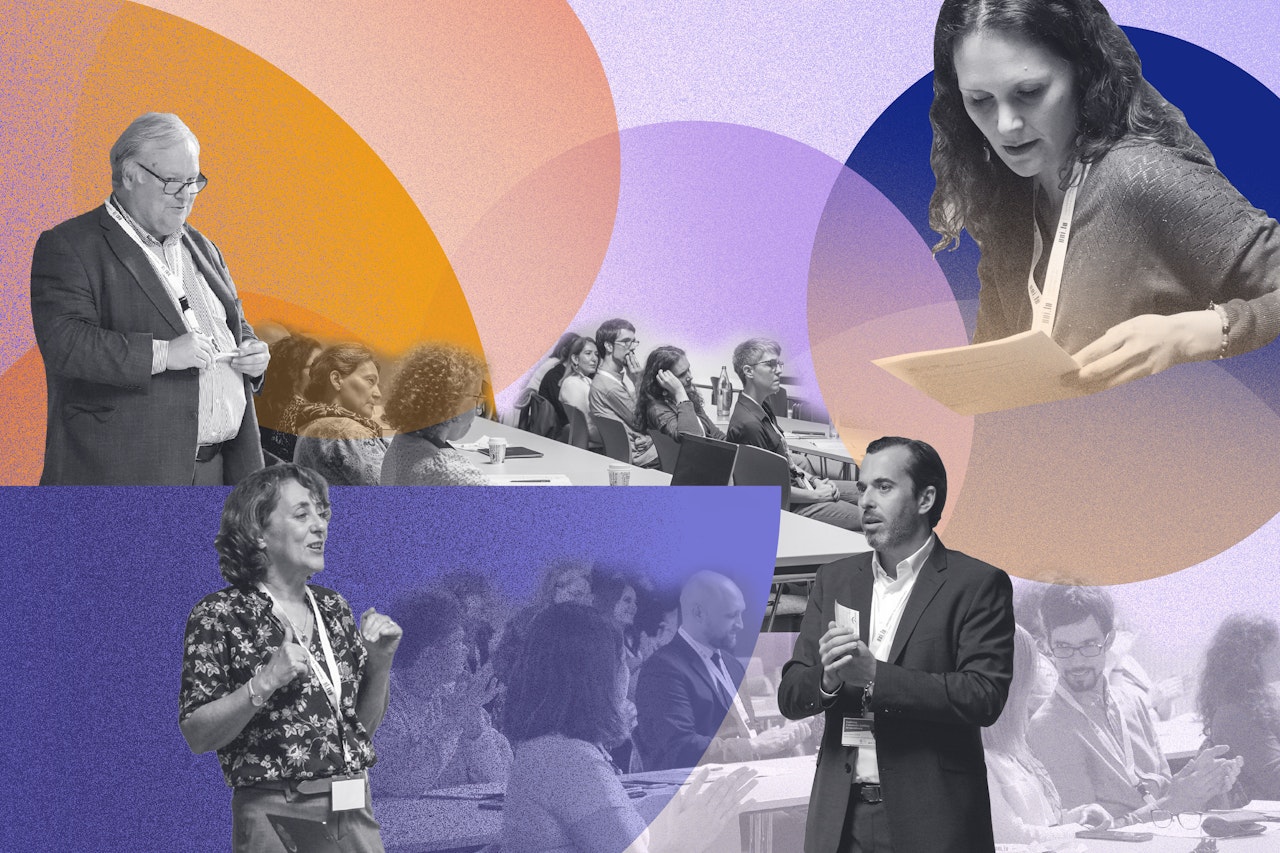Luxembourg
Overcoming passivity through community-building
The Bahá’ís of Luxembourg bring together academics and civil society members to explore the role of the community in overcoming the challenges of passivity.

The Bahá’ís of Luxembourg bring together academics and civil society members to explore the role of the community in overcoming the challenges of passivity.

ESCH-BELVAL, Luxembourg — Over the last three years, an expanding conversation in Luxembourg has been exploring the role of the community in overcoming the challenges of passivity and social fragmentation by examining their root causes. Facilitated by the Bahá’ís of that country, this initiative bridges theory and practice by bringing together academics and members of civil society in forums held at the University of Luxembourg to advance thought about fostering a more cohesive society.
Jean-Pierre Schmit of Luxembourg’s Bahá’í Office of Public Affairs explains that these discussions draw on insights from Bahá’í community-building efforts that encourage participants to look beyond their immediate circles and actively contribute to the well-being of their wider communities.
“Overcoming lethargy and fostering agency are no simple tasks,” says Mr. Schmit, adding that “the challenges of passivity are pervasive in modern society, where a desire to be entertained is nurtured from childhood by different social forces.”
Despite this challenge, Mr. Schmit, in a conversation with the News Service, noted that Bahá’í community-building endeavors offer valuable insights. These educational and service efforts create environments where participants see themselves on a collective journey to contribute to social betterment through practical actions in their neighborhoods.
“In this process, neighbors learn to consult together about specific needs, such as the moral education of their children,” he said. As participants address these needs, they come to better understand each other, seeing more in common than differences, and a profound sense of humanity’s essential oneness begins to flourish.
The series of annual workshops and fortnightly reading groups exploring these themes with academics and civil society actors over the past three years are part of the Bahá’í community’s contribution to the discourse on social cohesion. These workshops—co-hosted by Professor Robert Harmsen, Dean of the Faculty of Humanities, Education, and Social Sciences—have been held at the University of Luxembourg.
Throughout the workshops, a key observation has been how the pandemic has impacted social dynamics. On one hand, the pandemic heightened a sense of care and community as people rallied to support one another. On the other hand, as Professor Harmsen has emphasized throughout the series of workshops, the pandemic also exacerbated existing social divisions and inequalities.
This dual impact has been a central theme in the discussions, highlighting both the potential for increased social cohesion and the challenges that need to be addressed. Mr. Schmit explained that while the health crisis has revealed deeper inequalities, communities fostering the capacity to serve one another are learning to overcome an ‘us-versus-them’ mindset. This shift, he said, nurtures outward-oriented communities that are inclusive and welcoming to people of diverse backgrounds, including those who have newly arrived in Luxembourg.
Lisa McLean, managing director of the community-based Radio Ara and one of the long-standing participants, emphasized the importance of the workshops and reading groups, saying, “They provided a space to reflect with like-minded individuals, helping us understand our experiences in a broader context.”
Mr. Schmit explains that upcoming workshops will continue to explore characteristics of vibrant communities that promote a sense of shared identity as members of one human family.